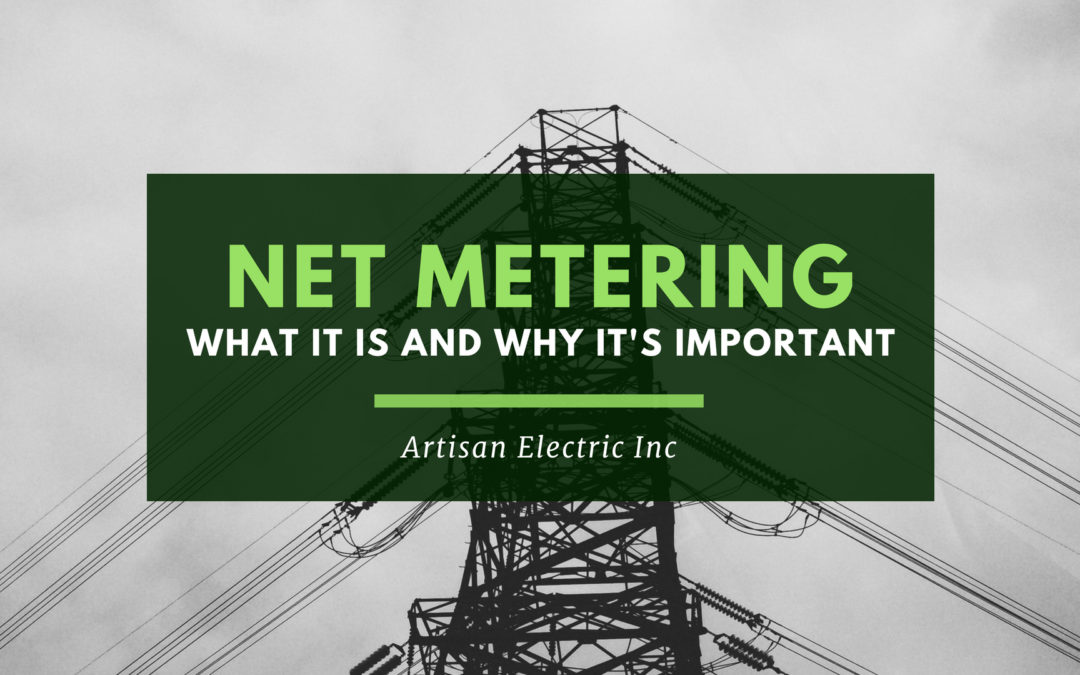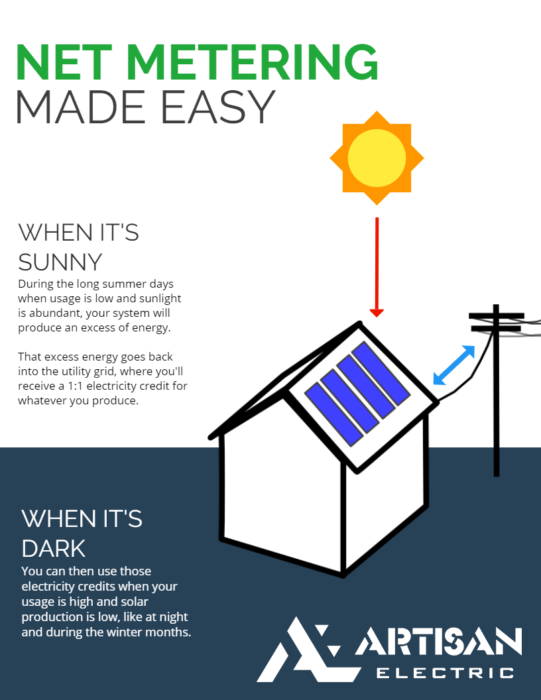We talk a lot about net metering, but it’s still not discussed enough. In many states, it’s controversial. Find out what it is and why Net metering is one of the most substantial ways solar is even viable in Washington state.
What is net metering?
Net Metering is a statewide program that incentivizes excess solar production.
Summers in the Puget Sound are hot, sunny and long (it’s bright from 5am to 9pm). Ironically, this is the time of year when people are also using the least amount of power. Before net metering, the excess energy produced by solar would simply go to waste. Now, that excess energy goes back into the grid to be used by your neighbors, and you receive a 1:1 watt-for-watt credit from your local utility.
Winters in the Puget Sound are a different story. While the sun is still producing energy, it’s far less than in the summertime. A dark, rainy, and cold climate mean more energy being used by the household and less is being produced. This is where net metering saves the day. Remember that credit you received? You can now use it when you need it without having to pay any more money.
Moving entirely to solar energy IS achievable in the Puget Sound and in Washington State. But it’s our incentive programs (including net metering) that truly make it a reality.
Why is net metering controversial?
At some point you may have heard of tension between the solar industry and utilities in Hawaii, Arizona, California, or Nevada. This has even escalated in some areas to strife-laden legal battles. Why?
Certain sunny states with no substantial “off-season” receive their net metering incentives not in the form of credits to be used later, but in the form of checks. This is becoming costly for many utilities in states where large portions have gone solar.
Is Net Metering controversial in Washington state?
Net Metering works differently in Washington state than in sunnier states, which can actually work to our advantage.
While Washington state is currently experiencing a solar boom, its solar-to-utility ratio is still quite small. And since Seattle is still one of the fastest growing cities in the US, with nearly 1,000 people moving here every week, the local utilities are becoming strained for resources. While net metering does cost the utility, the credits they’re compensating are for both the energy produced AND to alleviate this strain.
Plus, because we do have an “off-season,” it is much more cost-effective for the utility to reward solar owners with credits instead of physical money.
Currently, we have an excellent relationship with the local utilities and we don’t foresee a change with that any time soon.
The future of Net Metering in Washington state
There is no expiration date for net metering, but it is offered on a first-come, first-served basis until the cumulative generating capacity of solar photovoltaic (PV) systems equals 1/2% of the utility’s peak demand. After a utility hits this quota, the utility can choose to continue offering net metering, or it can create a new arrangement for future customers. This is another good reason to get your system installed sooner rather than later!


